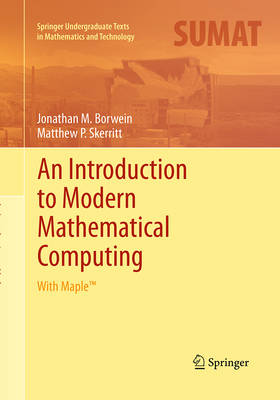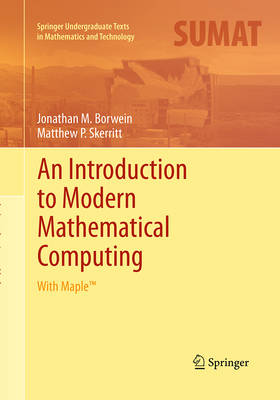
- Retrait gratuit dans votre magasin Club
- 7.000.000 titres dans notre catalogue
- Payer en toute sécurité
- Toujours un magasin près de chez vous
- Retrait gratuit dans votre magasin Club
- 7.000.0000 titres dans notre catalogue
- Payer en toute sécurité
- Toujours un magasin près de chez vous
An Introduction to Modern Mathematical Computing
With Maple(tm)
Jonathan M Borwein, Matthew P SkerrittDescription
Thirty years ago mathematical, as opposed to applied numerical, computation was difficult to perform and so relatively little used. Three threads changed that: the emergence of the personal computer; the discovery of fiber-optics and the consequent development of the modern internet; and the building of the Three "M's" Maple, Mathematica and Matlab.
We intend to persuade that Maple and other like tools are worth knowing assuming only that one wishes to be a mathematician, a mathematics educator, a computer scientist, an engineer or scientist, or anyone else who wishes/needs to use mathematics better. We also hope to explain how to become an `experimental mathematician' while learning to be better at proving things. To accomplish this our material is divided into three main chapters followed by a postscript. These cover elementary number theory, calculus of one and several variables, introductory linear algebra, and visualization and interactive geometric computation.
Spécifications
Parties prenantes
- Auteur(s) :
- Editeur:
Contenu
- Nombre de pages :
- 216
- Langue:
- Anglais
- Collection :
Caractéristiques
- EAN:
- 9781493942459
- Date de parution :
- 23-08-16
- Format:
- Livre broché
- Format numérique:
- Trade paperback (VS)
- Dimensions :
- 178 mm x 254 mm
- Poids :
- 610 g

Les avis
Nous publions uniquement les avis qui respectent les conditions requises. Consultez nos conditions pour les avis.






